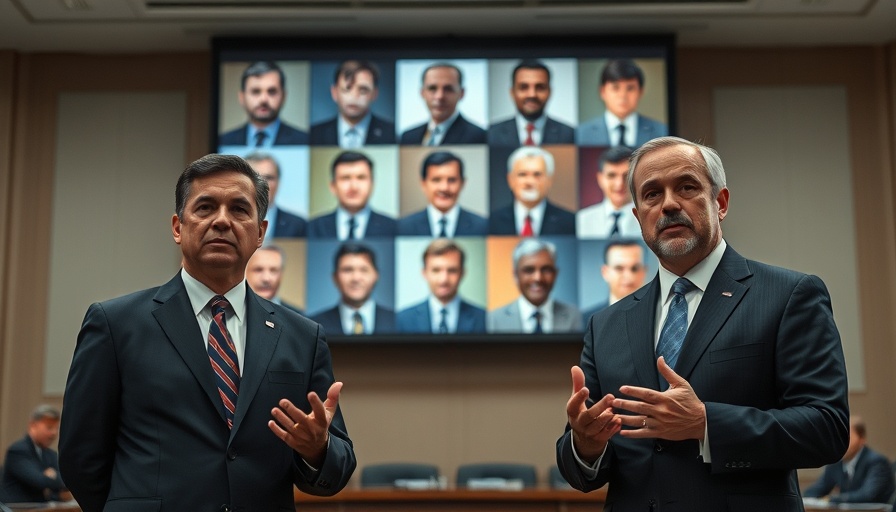
The Impact of Deportation Policies on Foreign Relations
In an increasingly interconnected world, the repercussions of U.S. immigration policy extend far beyond its borders. Recently, Senator Marco Rubio articulated grave concerns over a federal court's halt on deportations to South Sudan, emphasizing that such rulings could yield 'irreparable harm' not just to those directly affected, but also to U.S. foreign policy.
The decision, which stems from a legal challenge to the Trump administration's plans to deport certain criminal migrants back to South Sudan, highlights a conflict between humanitarian considerations and national security interests. Proponents of the ruling argue it protects vulnerable populations from persecution, while critics warn that undermining deportation policies may embolden illicit activities and affect diplomatic relationships.
Why This Issue Matters Globally
Immigration isn’t just a domestic issue; it has profound implications for global diplomacy. Sending migrants back to South Sudan presents risks, particularly given the region's ongoing instability, which Rubio pointedly referenced. If the U.S. is seen as hesitant to follow through on immigration agreements, it could lose credibility with its allies and compromise its ability to address future crises effectively.
This situation is compounded by the United Nations' push for countries to respect human rights. The delicate balance the U.S. tries to maintain between upholding its legal standards and adhering to international humanitarian obligations often leads to critical diplomatic challenges.
Contrasting Opinions: Humanitarian Concerns vs. National Security
The debate surrounding the deportation policy emphasizes a significant divide within the U.S. political landscape. On one side, proponents of a more lenient policy argue for the importance of providing sanctuary and support for individuals fleeing oppression and violence. On the other, national security advocates stress the necessity of maintaining law and order, positing that certain deportations are vital for the safety of American citizens.
Rubio's warning serves as a rallying cry for national security advocates who fear that leniency could lead to increased criminal activities and embolden those who might exploit the system. This contentious debate not only embodies the complexities of U.S. policies but also reflects the intricate relationship between immigration and national security.
A Historical Perspective on Similar Policies
Historically, U.S. immigration policies have faced accusations of inconsistency, particularly in response to international crises. For instance, during the Cold War, immigrants fleeing Communist regimes were often welcomed, while those from countries aligned with America faced stricter scrutiny. Understanding this historical precedent can provide valuable insights into current debates and the underlying motives driving various policies.
This context serves to remind us that immigration policy is often influenced by broader political dynamics and international relations, with ripple effects that can last for generations.
The Road Ahead: What to Expect from U.S. Immigration Policy
As the legal battles surrounding deportation policies unfold, it remains crucial for citizens to stay informed about how such changes will affect not only individuals but also the U.S.’s standing in the world. The future of immigration policies could reshape diplomatic relationships and expose underlying tensions that have characterized U.S.-Africa relations for decades.
Continued advocacy for balanced immigration policies that consider both humanitarian imperatives and national security needs will shape the landscape of America’s foreign relations moving forward. As legal challenges persist, it is vital for legislators, analysts, and the public to engage in these critical discussions.
Understanding the far-reaching implications of these policies not only affects the lives of migrants but also influences the global stage, sparking discussions on accountability and morality in foreign policy. As such, this is a defining moment not just for those impacted by deportation orders but for America’s role as a leader in the world.
Join the Discussion
The complexities of immigration and foreign policy are profound, and your voice is important. Engage with the ongoing conversation surrounding these issues. Whether it’s through sharing your experiences or advocating for effective policies, being informed is the first step to making a difference.
 Add Element
Add Element  Add Row
Add Row 



Write A Comment